Biden signs major climate, health care legislation
The measure is expected to be paid for by new taxes on large companies and stepped-up IRS enforcement of wealthy individuals and entities, with additional funds going to reduce the federal deficit.
The measure is expected to be paid for by new taxes on large companies and stepped-up IRS enforcement of wealthy individuals and entities, with additional funds going to reduce the federal deficit.
Under the bill, companies will face a new 1% excise tax on purchases of their own shares, effectively paying a penalty for a maneuver that they have long used to return cash to investors and bolster their stock price.
Now that the IRS is set to receive nearly $80 billion through the so-called “Inflation Reduction Act,” the agency has the means to develop new systems to help Americans pay their taxes.
After a paper shortage delayed the first round of checks by several weeks, all paper needed for printing has now been received, meaning checks can start going out, said a spokesperson for the state auditor’s office.

Indianapolis Mayor Joe Hogsett introduced his 2023 city budget to the City-County Council on Monday evening, highlighting priorities of property tax relief, violence reduction, infrastructure improvements and education.
Major changes to the Affordable Care Act. The nation’s biggest-ever climate bill. The largest tax hike on corporations in decades. And dozens of lesser-known provisions.
The bill represented a concession from GOP senators who were initially wary that the rebates would further fuel inflation.
The measure uses more than $1 billion in reserve accounts to send $200 checks to millions of eligible Hoosiers, including hundreds of thousands of Hoosiers utilizing Social Security or disability benefits.
The Indiana House approved a bill Friday that would provide $200 rebate payments from the state’s surging budget surplus. The Senate could consider the bill later Friday.
The Senate’s decision sets up a showdown with the House over what the final package will look like.
House Bill 1001 also expands the pool of eligible Hoosiers for the checks to include those using Social Security and disability benefits. Additionally, it shores up various funds in support of families and repeals the state’s diaper tax.
The deal aims to lower health-care costs, combat climate change and reduce the federal deficit, marking a massive potential breakthrough for President Joe Biden’s long-stalled economic agenda.
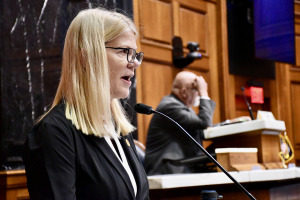
House and Senate Republicans in the Indiana General Assembly remain on a collision course over how to provide inflation relief for Hoosiers after committees from both chambers passed bills that take vastly different approaches.
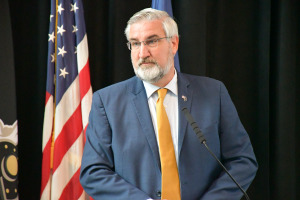
Indiana Senate Republicans effectively signaled their opposition to Gov. Eric Holcomb’s plan by presenting an alternative proposal aimed at providing some financial relief for Hoosiers during a period of record-high inflation.
A total of 62.4 cents per gallon in state taxes will be charged during August, the Indiana Department of Revenue announced Monday.
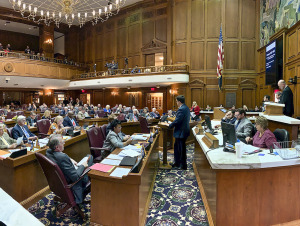
In this week’s podcast, IBJ Editor Lesley Weidenbener—in for vacationing host Mason King—talks about the upcoming special session with Peter Blanchard, IBJ’s new Statehouse reporter, and managing editor Greg Weaver, who has spent much of his career writing about and editing reporters who cover Indiana politics.
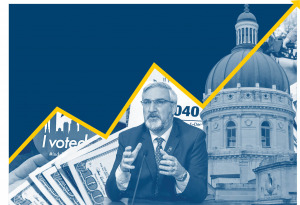
As the Legislature prepares to consider Gov. Eric Holcomb’s proposal to return $1 billion of the surplus to taxpayers, some legislators and business leaders question whether that’s the best use of the windfall.
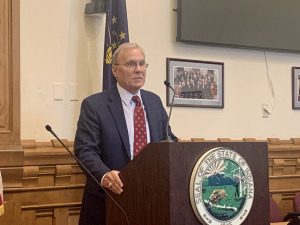
The news comes as state lawmakers prepare to consider Gov. Eric Holcomb’s proposal to send $1 billion to taxpayers in the form of $225 refund checks.
A nationwide investigation of state lotteries by the Howard Center for Investigative Journalism at the University of Maryland found that lottery retailers are disproportionately clustered in lower-income communities in nearly every state.
As of June 22, Indiana had issued about $245.6 million in refunds, according to the Department of Revenue. That’s about 45% of the $545 million Gov. Eric Holcomb promised to return when he announced the move in December 2021.